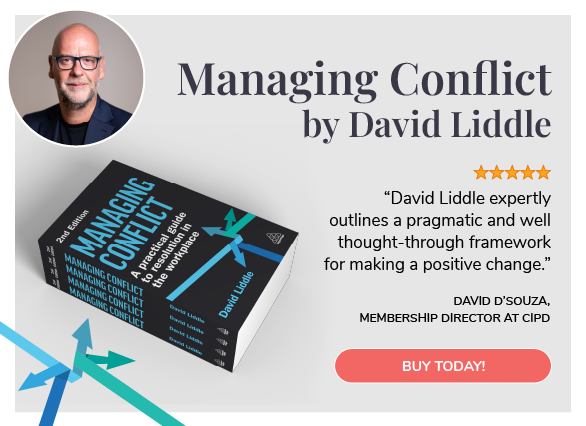
Share article:
Tags:
We all want to be happy, don’t we? Happiness is one of the most important indicators of success. In fact, I would argue that it is the singularly most important indicator of success.
When work is working, we feel valued, engaged, nurtured and supported – it’s a wonderful feeling and it gives meaning to our lives – we feel happy. All too often though, the workplace fails to live up to our expectations. For an increasing number of people, it becomes something to endure. Get in, do your job and get out. Or worse still, don’t get in at all.
Now England’s chief health advisers have joined the debate with a report saying that happy, healthy workplaces increase the productivity of the business.
Guidelines from the health watchdog NICE urges employers to make sure staff work reasonable hours and take regular breaks. What’s interesting is that NICE believes this should be done for the organisations efficiency and bottom line, not just for the benefit of workers.
Click here to access the full report from NICE including the evidence and the guidelines.
Figures indicate that work-related illnesses cost society about £13bn a year and a significant part of that is down to problems caused by conflict and harassment. Professor Gillian Leng, NICE’s Deputy Chief Executive, says:
“It is not only the physical hazards of work – long, irregular hours, lack of activity or repetitive injuries – that damage people’s health. Other factors such as a lack of control over work, conflicts, and discriminatory practices can also have an effect.”
Traditional dispute resolution processes create unhappy people
With such a negative impact, it is no surprise that NHS leaders are seeking alternatives to the traditional grievance processes used to deal with conflict which are inherently adversarial and often fail to bring disputes to a satisfactory resolution. It seems that many trusts feel enough is enough and are turning to mediation. Mediation is gaining in both popularity and credibility within the healthcare sector.
In recent research published by Warwick University, Professor Andrew Oswald, Dr Eugenio Proto and Dr Daniel Sgroi led the research. “Happier subjects tend to be more productive than less happy ones”, said Dr Proto. He goes on to suggest…
“If this result holds [true] in a workplace, happier employees will be more productive.”
Mediation and happiness at work
The Northumbria Healthcare NHS Foundation Trust (NHFT) is one of many trusts to have made the move. Staff surveys at NHFT identified bullying and harassment as a significant problem for some staff and the stress management standards set down by the Health and Safety Executive highlighted that organisations should have in place systems for dealing with conflict, bullying and harassment at work.
After identifying mediation as a promising alternative, NHFT asked The TCM Group to develop a new and fully integrated conflict management system within the Trust. TCM also trained all the mediators and conflict coaches involved.
The system has been running extremely well so we were thrilled when the Governments arbitration service ACAS announced it was carrying out a study into the effects of workplace mediation at the Northumbria Healthcare NHS Foundation Trust. we were very keen to see the conclusions of such a highly respected report.
“The ACAS report is an important one, not just for the Trust or for TCM. It is one of the most thorough examinations of mediation seen in this country. And it is very positive indeed.”
Put simply, it finds that the success of mediation was very high, with 90% of mediations resulting in an agreement – directly contributing to peoples happiness at work. It found that most of those who had been through the experience felt that their situation had improved as a result and over 75% would recommend mediation to a friend.
This is fantastic news and in line with our experiences here and at other organisations we have worked with.
Winners and losers
Under the previous grievance system, it was felt that personality clashes and performance management issues were the cause of most of the conflict in the organisation. Although wasted staff and management time were the most obvious costs, there was also evidence that conflict was having an impact on performance and even patient care.
In other words, under the previous system no one was winning and a lot of people were losing.
So what are the principles behind workplace mediation? Mediation can be defined as a non-adversarial process of dispute resolution during which an impartial third party helps the two or more parties have an open and honest conversation and identify an outcome which is mutually acceptable. The mediator does not propose solutions, they do not make judgments about who is right or wrong and they do not assess culpability or blame.
Mediators may be trained internal mediators or external mediators. Most practising mediators in the UK are members of the Professional Mediators’ Association and subscribe to the PMA’s code of conduct and professional standards.
Spread a little happiness, invest in a mediation service
Training internal mediators and establishing mediation schemes are emerging as the most popular and effective approaches for embedding mediation. The reasons for setting up an internal mediation scheme can range from concerns about the cost of grievances and litigation to reducing stress.
In the case of Northumbria, the aim was to fundamentally shift the focus to early conflict resolution, and with TCM’s help the trust has achieved that goal. As one participant in mediation put it:
“I felt a lot better solving my issues this way rather than hoping they would solve themselves. I went in nervous, unsure and came out calm, confident and happy with the results. I felt my issues were solved and it was a great relief for me to be able to talk about these issues and not be judged.”
Mediation can produce creative solutions to systemic problems by engaging everyone – this often generates new learning for the individuals and the entire team. Mediation is not just being favoured by those who operate within a therapeutic or human resources environment. Increasing numbers of legal professionals are supporting mediation within the NHS.
Northumbria Healthcare NHS Trust has seen enormous human benefits to the organisation but has also seen substantial financial gains. The Trust calculated that the costs of a basic grievance process were around £1,800. This is a basic figure and does not include the broader costs such as effect on individuals and time lost due to stress or effects on team productivity.
In comparison, the cost, on average, of mediation when delivered by an in-house mediator is estimated as £520.
Evidence suggests mediation is being used in issues ranging from resolution of disputes between colleagues to management of conflict between healthcare professionals, patients and their families.
Across the board there has been a move to try and sort things out early and informally. As one manager who talked to the ACAS report authors put it:
“I was probably more a person that would reach for the policies and procedures and wait necessarily until someone wanted to make it a formal process, not anymore… I’d spend twenty minutes with someone who’s upset or whatever but it doesn’t matter, it nips it in the bud, the person has been listened to and we discuss what their options are and what they want to do and what we’re going to do going forward.”
As the ACAS report concluded:
“This case study provides a unique example of an organisation that has adopted a strategic and systematic approach to conflict management. Furthermore, there is persuasive evidence that this has led to the development of a culture in which early resolution and a collaborative approach to conflict is embedded.”
The extensive benefits of mediation are now becoming clear: reduced time spent dealing with grievances and litigation, reduced costs, reduced stress and increasing levels of wellbeing, engagement and productivity are major contributors to a modern and successful NHS.
Officials within NHS Employers, part of the NHS confederation are fully behind the drive to promote mediation as a tool for creating happy workspaces within the NHS.
“NHS Employers supports the increased use of mediation in the NHS as an effective means of resolving complaints, managing change and handling workplace disputes. There are benefits in terms of outcomes, maintaining on-going relationships and value for money.”
In conclusion
Many peoples experience of traditional workplace dispute resolution is one of despair, alarm and anxiety. A cause of real unhappiness. Mediation is just one way that progressive organisations are turning these issues on their head in an attempt to create happier, healthier and more harmonious workplaces. I know where I would prefer to work, do you?








